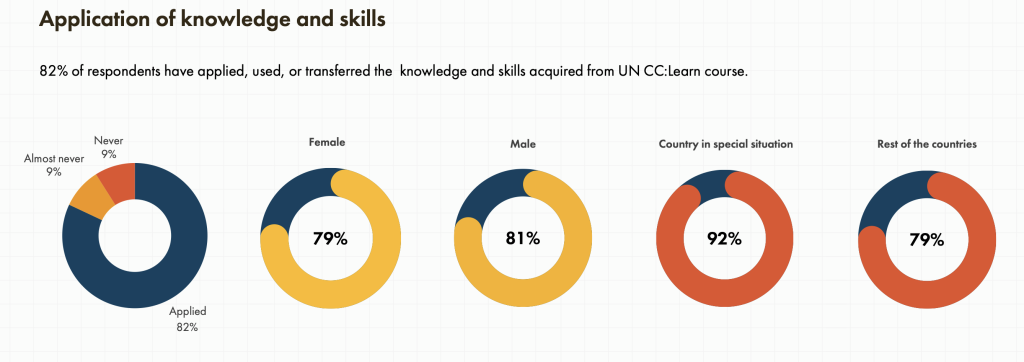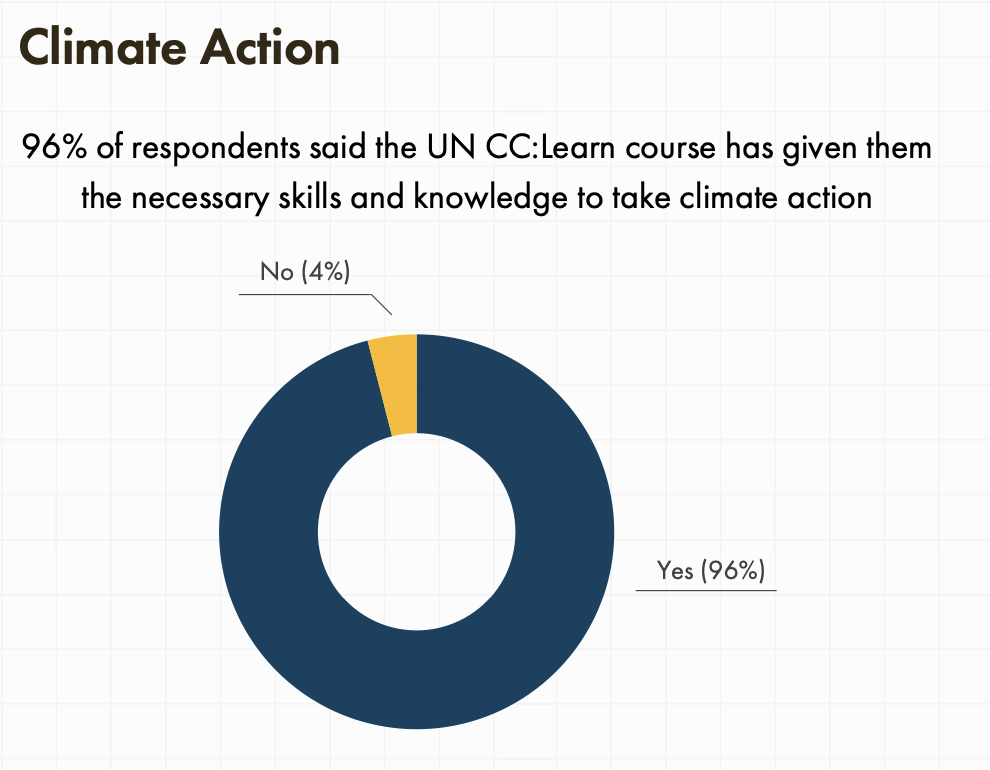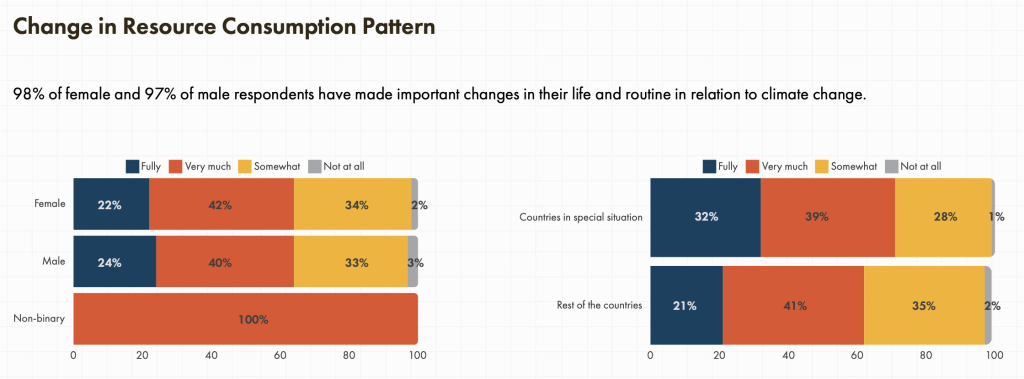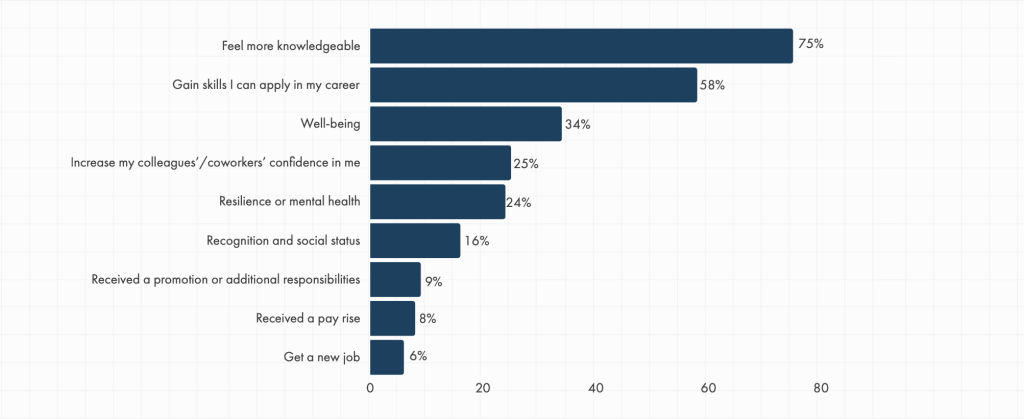Education is one of the most powerful drivers of positive social and environmental change. Since 2014, UN CC:Learn has contributed to climate change education globally by providing free and self-paced online courses on climate change to over 880,000 learners.
The +100 e-courses in up to 17 languages available on the e-learning platform strive to provide individuals and communities with the knowledge, skills, and resources needed to effectively understand and respond to climate change.
But are UN CC:Learn courses actually contributing to positive and long-lasting behavioral change in its learners?
To answer this and other questions, UN CC:Learn prepared the 2023 Impact Survey. The Impact Survey is conducted on an annual basis and follows an approach based on the Kirkpatrick Level 3 evaluation model intended to assess the degree to which beneficiaries apply the skills and knowledge learned through the e-courses at their workplace. The survey also intends to understand how these new skills have supported UN CC:Learn alumni to adopt climate-friendly decisions and take action on climate change.
The 2023 Impact Survey was sent to a random sample of 495 participants who received a certificate of completion after taking an e-course on the UN CC:Learn e-learning platform. The sample enabled results with a 95% confidence level and 5% error range. The survey was available in English, Spanish, French, and Portuguese and the results were reported anonymously and in an aggregated format.
Here are some of the key findings.
Learners are applying the knowledge they have acquired from a UN CC:Learn e-course
82% of respondents have applied, used, or transferred the knowledge and skills acquired from a UN CC:Learn course.
In addition, 92% of respondents from countries in special situations said they have applied used, or transferred the knowledge and skills learned from UN CC:Learn.

Learners are taking climate change action after completing a UN CC:Learn e-course
96% of respondents said the UN CC:Learn course has given them the necessary skills and knowledge to take climate action.
In addition, 60% said they have become more efficient in the way they use water or energy, 55% said they have recycled more of their waste at home and at work, and 54% said they have supported climate actions in their communities.

Learners have changed their consumption patterns after completing a UN CC:Learn e-course
98% of female and 97% of male respondents have made important changes in their lives and routines in relation to climate change.
In addition, 99% of respondents from countries in special situations have said they have made important changes in their life and routine upon completing a course.

The acquisition of new skills and knowledge has led to important improvements for beneficiaries.
75% feel more knowledgeable about climate change, 58% said they gained skills they can apply in their careers, and 8% said they received a pay rise after completing a UN CC:Learn course.


